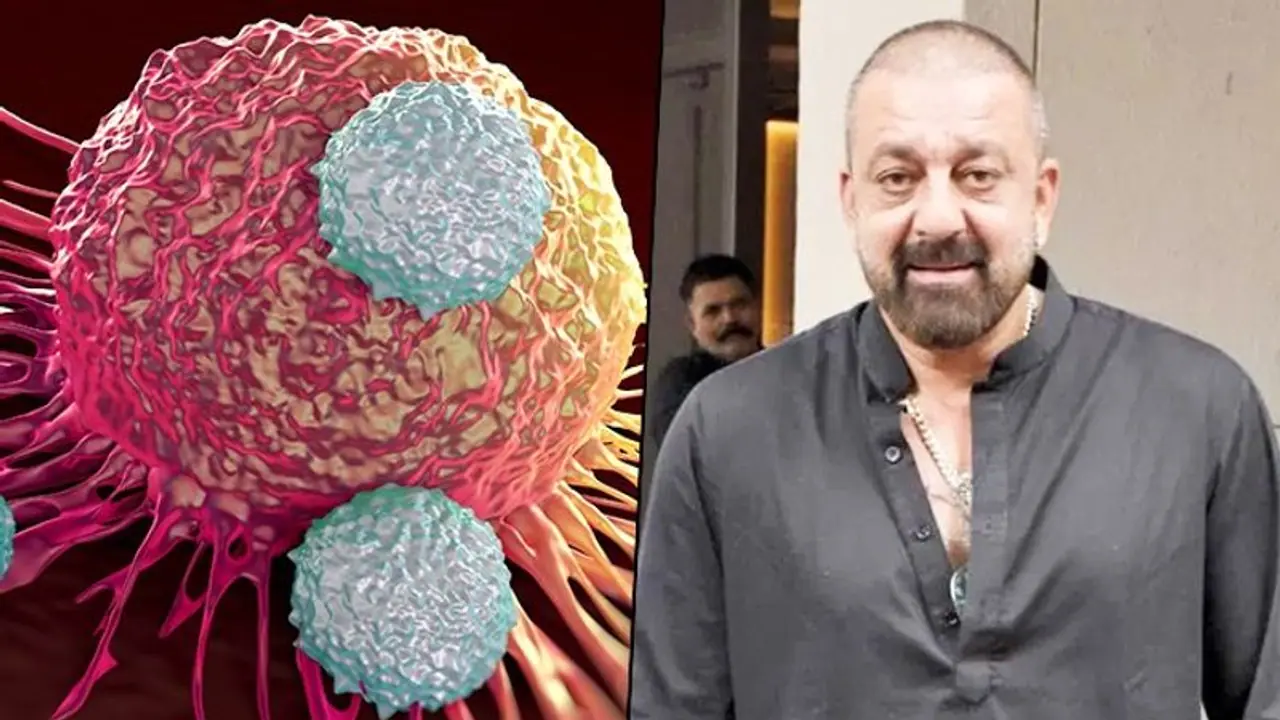Here are details of two types of cancer that are hard to detect but can be treated if detected at the right time – stomach cancer and colorectal cancer
Bollywood actor Sanjay Dutt is diagnosed with stage 3 of lung cancer, journalist Komal Nahta said in a tweet. “Sanjay Dutt diagnosed with lung cancer. Let’s pray for his speedy recovery,” he tweeted.

He also added that Dutt is disturbed by the news and wanted to be cured fast. “It is curable. He needs instant and rigorous treatment for which he leaves immediately,” a report by Film Information stated adding that Dutt will soon fly to the US for treatment.
According to another source, a close friend said, “Baba (Sanjay Dutt) is devastated. He has little children. Fortunately, they are in Dubai right now with their mother. But breaking this awful news to them would be an ordeal.”

Today, we will talk about the dangerous word 'cancer' as recently we lost two great actors due to the same illness, Rishi Kapoor and Irrfan Khan.
There are more than 100 types of cancers that have been identified by doctors till date. Cancer, also known as malignancy, is an abnormal growth in the cells of the body. They are different from benign tumours because unlike them, cancerous tumours spread to different parts of the body and negatively affect one’s stamina and immunity.
The number of cases of cancer has been increasing across the world. While some part of it can be blamed on lifestyle choices like tobacco, smoking or consumption of alcohol, there are other factors as well. Today we look at two types of cancer that are hard to detect but can be treated if detected at the right time – stomach cancer and colorectal cancer.
Stomach cancer
Stomach cancer starts when cancerous or malignant cells start forming in the inner lining of the stomach and slowly grow into a tumour. The growth of the malignant cells is slow because of which this type of cancer takes longer to start showing symptoms.
Symptoms of stomach cancer to watch out for:
• Fatigue
• Feeling bloated after eating
• Feeling full after eating small amounts of food
• Severe, persistent heartburn
• Severe indigestion that is always present
• Unexplained, persistent nausea
• Stomach pain
• Persistent vomiting
• Unintentional weight loss
Stomach cancer falls in the category of types of cancer that are caused because of poor lifestyle choices. One of the leading causes can be a history of GERD or flowing back of stomach acid into the food pipe. Obesity can also be a reason behind this.
Apart from these some lifestyle choices that can lead to stomach cancer are:
• A diet high in salty and smoked foods
• A diet low in fruits and vegetables
• Family history of stomach cancer
• Infection with Helicobacter pylori
• Long-term stomach inflammation
• Pernicious anemia
• Smoking
• Stomach polyps
Treatment plan for stomach cancer
Although medical science has not been able to point out the actual causes of stomach cancer, it can still be prevented by making small changes to your everyday life.
• Exercise. Regular exercise is associated with a reduced risk of stomach cancer. Try to fit physical activity into your day most days of the week.
• Eat more fruits and vegetables. Try to incorporate more fruits and vegetables into your diet each day. Choose a wide variety of colorful fruits and vegetables.
• Reduce the amount of salty and smoked foods you eat. Protect your stomach by limiting these foods.
• Stop smoking. If you smoke, quit. If you don't smoke, don't start. Smoking increases your risk of stomach cancer, as well as many other types of cancer. Quitting smoking can be very difficult, so ask your doctor for help.
Colorectal cancer
Colorectal cancer, also known as bowel cancer, is a type of malignancy that affects the colon and the rectum. It typically starts in the colon or large intestine and is the most common form of cancer that affects the digestive system.
Symptoms of colorectal cancer to watch out for:
• Weight loss
• Diarrhea or constipation
• Changes in stool consistency
• Loose and narrow stools
• Rectal bleeding or blood in the stool
• Abdominal pain, cramps, bloating, or gas
• Pain during bowel movements
Most colon cancer originates from benign tumours which are known as adenomatous polyps. These benign tumours start forming in the inner walls of the large intestine. While there can be many reasons behind development of cancerous cells in the bowel area, some of the common causes are:
• Inflammatory bowel disease, ulcerative colitis or Crohn's disease
• Family history of colon cancer
• Consumption of red meat in large quantities
• Low fiber diet
• Obesity
As in the case of most cancers, while there is no certainty that a particular lifestyle can cause or prevent cancer, there are certain small steps that can be taken to prevent colorectal cancer:
• Maintaining a healthy weight
• Exercise
• Consuming plenty of fruits, vegetables, and whole grains
• Decrease in consumption of saturated fat and red meat
Diagnosis
• Colonoscopy followed by biopsy of the lesion
• CT abdomen
• Carcinoembryonic antigen (CEA)
• Other clinical findings
Treatment
Treatment will depend on the type and stage of cancer, and the age, health status, and other characteristics of the patient.
There is no single treatment for any cancer, but the most common options for colon cancer are surgery, chemotherapy, and radiation therapy.
(This article has been contributed by Dr Piyush Somani who is a specialist in Gastroenterology at Thumbay Hospitals in Dubai. Thumbay Hospitals is one of the best medical institutions in the Middle East for consultation about cancer or oncology)
